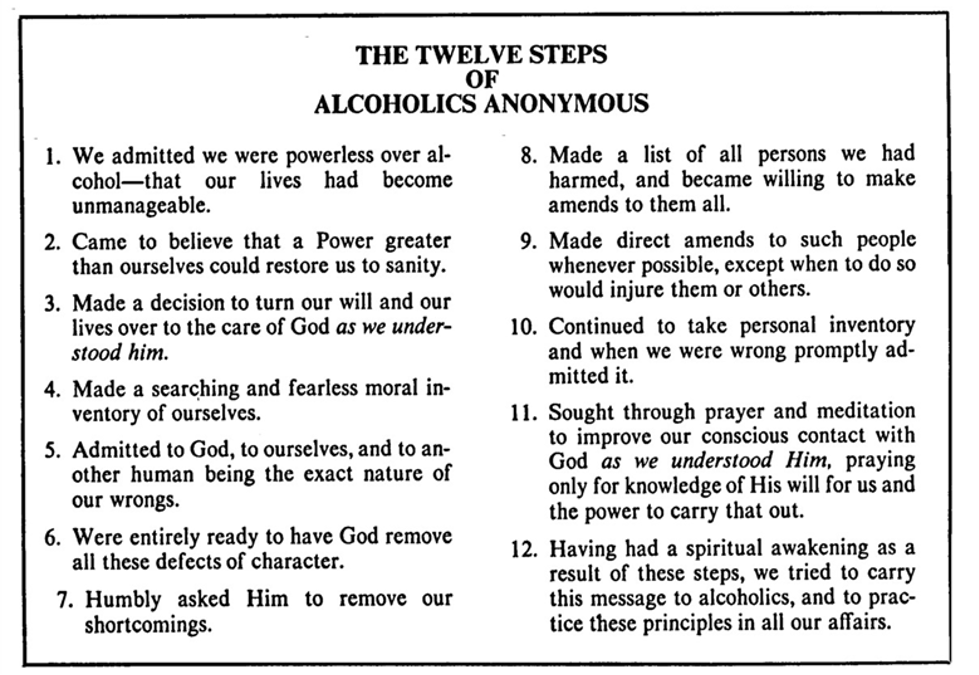
12 Steps

The 12 Steps of recovery, expressed in groups like Alcoholics Anonymous, show how certain addictive behaviors lead to one’s crisis and help them work through and integrate their brokenness (cactus) in telling their story.
“The ‘language of recovery’ works not because those telling their stories describe experiences of Release, Gratitude, and so on, but because in the very telling of their stories, they actually experience those realities.”
–Kurtz & Ketchum, The Spirituality of Imperfection, 160.
We often have to reach the end of ourselves to discover the purpose and end of life. Step One teaches us to accept that life is “unmanageable”—we have to surrender to a higher power and stop pretending everything’s fine and we’re in control. But, as Richard Rohr always says, “surrender often feels like dying.” That’s because we are dying. Dying to our old selves, old patterns & habits. After searching our souls with a “fearless and searching moral inventory,” we seek forgiveness: for ourselves and for others. It’s this forgiveness and embracing the messy sides of our souls that leads to true healing. Because our addiction, our problem isn’t actually the problem at all. In fact, it’s a bad solution to the very real chasm in our soul [insert hyperlink to “I call it a solution blog”]. For more information check out our resources page.





